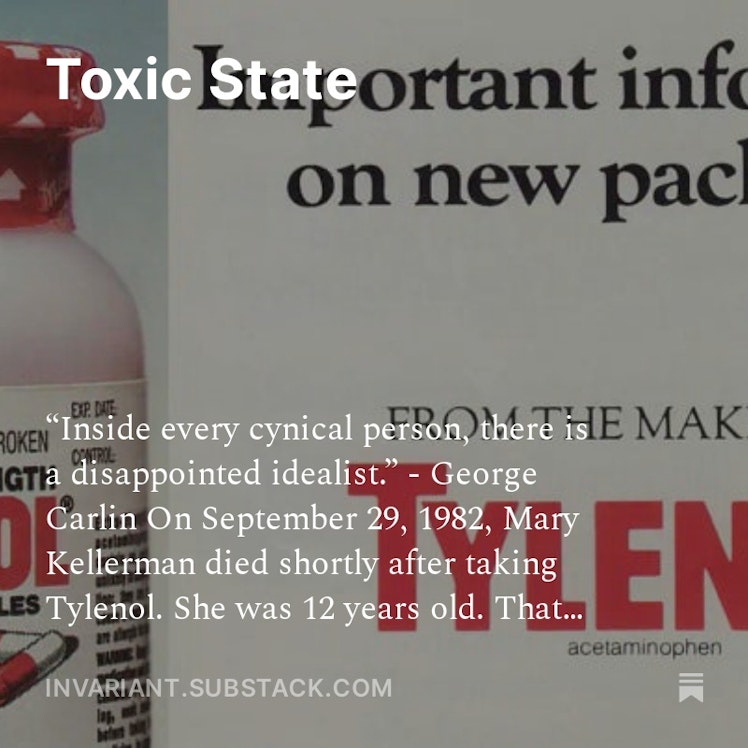Trending Assets
Top investors this month
Trending Assets
Top investors this month
Toxic State: How the FDA is failing America.

“Inside every cynical person, there is a disappointed idealist.” - George Carlin
On September 29, 1982, Mary Kellerman died shortly after taking Tylenol.
She was 12 years old.
That same day, Adam Janus (27) died after taking Tylenol. His brother, Stanley (25), and Stanley’s wife, Theresa (19), later also died after having taken from the same bottle. Over the next several days, this trend continued, with Tylenol-related deaths popping up all around the Chicago Metropolitan area.
Lab tests would expose the presence of cyanide in the tainted bottles, followed by investigators concluding that while the bottles were safely produced, they had likely been tampered with once on store shelves. The manufacturer of Tylenol, Johnson & Johnson, issued warnings to distributors and hospitals and halted all advertising. But copycats began to spring up. Targeting Tylenol and other over-the-counter medications, additional deaths occurred across the United States. This led to a voluntary nationwide Tylenol recall, removing over 31 million bottles from circulation. Johnson & Johnson was largely hailed for its response to the emergency, having been highlighted in articles at the time stating its actions were exactly how big businesses should act during a crisis. Despite the praise, the company ultimately settled multiple lawsuits related to the original Chicago area deaths for an undisclosed sum.
The offender(s) responsible for the original Tylenol murders were never found, and after decades of failed inquiries, the investigation has gone cold.
I have a weird habit of thinking about the Chicago Tylenol murders every time I’m aching and reach into the medicine cabinet for relief. Yet, despite the initial deaths all occurring within a mere hour of where I live and...
Finish reading at the link below:
invariant.substack.com
Toxic State
How the FDA is failing America.
Already have an account?